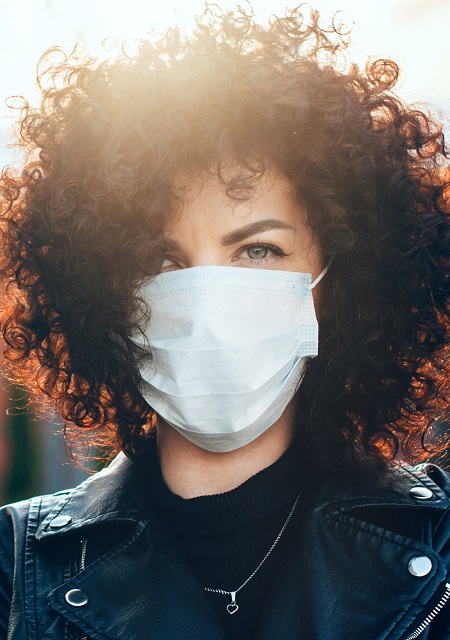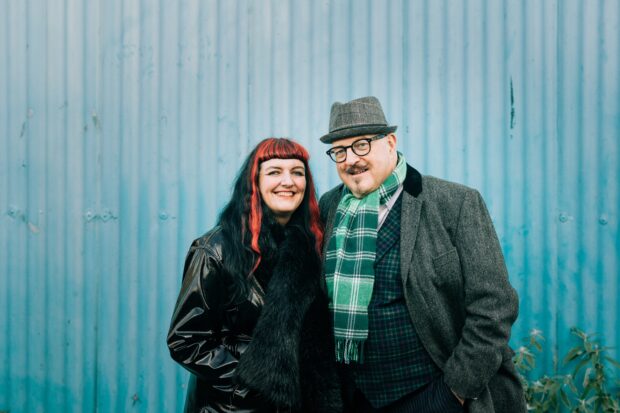
It’s been called “Freedom Day” by some – from July 19th all legal Covid-19 restrictions will be lifted in England.
But what does that mean for young people with arthritis, or anyone with a condition which makes them more vulnerable?
We’ve been speaking to experts to get some advice and support for anyone who may be worried about the lifting of restrictions.
This article was last reviewed on July 19th, 2021.
What’s changing in England on 19 July?
What about the rest of the UK?
I have arthritis. How can I stay as safe as possible?
What are the risks to me if I have arthritis?
I’m anxious. How can I prepare myself for the lifting of restrictions?
What’s changing in England on 19 July?
• No limit on meeting people but try to meet others outside where possible
• People currently working from home should return to the workplace gradually
• Nightclubs open and a return to full capacity for theatre and cinema audiences
• Businesses and large events encouraged to use Covid-certification to limit the spread of the virus
• Face coverings recommended in crowded public spaces, such as public transport
• Social distancing is no longer mandatory
For full details of changes in England from July 19th, go to: https://www.gov.uk/guidance/covid-19-coronavirus-restrictions-what-you-can-and-cannot-do#england-has-moved-to-step-4
What about the rest of the UK?
All of Scotland will go into Covid protection level 0 on July 19th. Restrictions are being eased but not completely lifted. Face coverings will still be compulsory unless exempt, on public transport and in shops. For all the details, go to https://www.gov.scot/news/level-0-from-19-july/
Wales moves to Alert Level 1 on July 17th. This means up to six people can meet indoors in private homes and holiday accommodation, and there are no limits on how many people can meet outdoors in public places or at events. Full details are on the Welsh Government website here: https://gov.wales/restrictions-17-july-summary
In Northern Ireland, restrictions will be eased further on July 26th, if this is approved at a review on July 22nd. Full details are here: https://www.nidirect.gov.uk/articles/coronavirus-covid-19-regulations-and-guidance-what-they-mean-you#toc-0
I have arthritis. How can I stay as safe as possible?
 Consultant Rheumatologist Dr Martin Lee says this is a very tricky question.
Consultant Rheumatologist Dr Martin Lee says this is a very tricky question.
“There are no easy answers, I’m afraid,” he says. “People have to use common sense as there are still lots of unknowns and will continue to be lots of unknowns for a long time.
“Just because rules and regulations are being relaxed does not mean that the pandemic is over by any means (you only have to look at daily figures rising rapidly). There are lots of other, non-medical factors behind the Government’s decisions.
“Vaccinations are good and are definitely the way forward but do not offer 100% immunity to infection.
“The common-sense approach for me would be to state that everyone needs to remember that the global pandemic is far from over. Just because there are no rules/laws/regulations enforcing mask wearing and social distancing doesn’t mean that people shouldn’t continue to practice these safety habits. Just look at the impact they had on influenza rates over the past year.”
Arthur’s Place, and many other organisations, are urging the general public to continue wearing face coverings in crowded public places. You can find out more about our campaign here: https://arthursplace.co.uk/life/covid/2021/07/07/please-keep-us-safe-wearing-a-face-mask-protects-young-people-with-arthritis/
And you can join in with the campaign on Twitter, Facebook and Instagram – use the hashtag #ThanksForMasking and tag Arthur’s Place in!
What are the risks to me if I have arthritis?
We still don’t know for sure whether people with rheumatoid arthritis, or any other inflammatory arthritis, are more likely to catch Covid than people without rheumatoid arthritis, says Dr Lee.
However, we do know that high rheumatoid disease activity puts you at increased risk of infection. Dr Lee explains: “Your body is busy fighting inflammation on other fronts and therefore its ability to fight Covid and other viruses, including influenza, is reduced.”
Steroids, such as prednisolone, can also reduce your immunity and ability to fight off infection. “Evidence shows that a recent rituximab infusion probably increases your likelihood for catching Covid infection,” says Dr Lee. That doesn’t mean you shouldn’t take your medication or treatment – you should be guided by your doctors – but you may need to take extra care to protect yourself from the risk of infection.
I’m anxious. How can I prepare myself for the lifting of restrictions?
Charley and Colin Gavigan, from the mental health practice Brave Your Day, have written the following, which may help with your perfectly natural anxieties and fears.
1. Preparing for ‘Re-Entry’
There is no re-entry rule book for how you should feel right now, as the world starts to reopen. We are all unique and experience our lives differently. Any feelings of anxiety or stress would be normal right now.
‘Re-entry anxiety’ is a specific form of stress related to a fear of returning to how we used to live. Only you know what you have been through over the past year. Can you respect and validate how you are feeling right now with no conditions attached to what you ‘should’ or ‘must’ feel?
We can fall into a trap of justifying or explaining or making excuses for how and why we are the way we are.
Paying attention to the stories you tell or carry about yourself, what will feature in your next life chapter? Ask yourself, how can you start telling a new story today that reclaims who you are, empowers and excites you rather than shrinks you?
 2. Reclaim a feeling of control
2. Reclaim a feeling of control
Creating your own meaning from the past year can help you to be mindful of not just what you have come through, but also what you have learned about yourself. All too often we can get caught in the cycle of comparison and despair. Distracted by concerns in our lives and the world that we have no control over.
Focusing on where you can bring influence in your life can offer a healthier recovery practice.
Practice shifting your focus to what you can influence in your own life daily. Keeping your mind and actions on what you want more of in your life and away from what you don’t want. What do you notice?
3. Redirect your social anxiety energy
Face-to-face interactions have been limited for many of us over the past months. Even people who may normally think of themselves as being extroverts might notice a bit of social anxiety as they start to reconnect with friends and colleagues in person.
It’s about recognising patterns of behaviour that lead to negative thoughts and trying to stop them from happening in a constant cycle.
It takes a lot of energy to interact with people when we are constantly thinking about what other people’s perception of us is.
Next time you are feeling under pressure try redirecting your energy – instead of stressing about all the outcomes of a social situation, think instead about what you can do to feel more at ease.
Remember people who we want in our lives will accept us if we accept ourselves.
4. Manage your sensory overload
As you start to reengage with the world you may notice it brings a rush of sounds, technicolour sights and eclectic smells that are very different to the isolation of your own home. For some people, this means sensory overload, which is a feeling of overwhelm caused by too much information.
If this is you, then consider how you can build up your tolerance gently by encouraging yourself to try something different every couple of days. Keep a journal track of what you are achieving. Slow and steady does it and recognise every achievement, no matter how small it may seem.
And remember…
Think of these practices as an encouraging invitation not a rigid prescription. They are offered simply to embolden you to play with something different at your own pace. No rules apply about how many practices you must complete.
The important thing is to just get started and reflect on what you are learning to keep moving yourself forward. Trust yourself and your pace, not what you imagine is expected of you.
You are naturally creative and resourceful. You have everything you need. Trust in yourself. You are the expert on you!
For more information on Covid-19 go to:
- Arthur’s Place – Covid-19 hub
- #ThanksForMasking – wearing a face mask protects young people with arthritis
- Feeling worried and anxious about emerging from lockdown? You are not alone.
- Versus Arthritis – Are you worried about Covid-19 restrictions easing?
- Mind – Managing feelings about lockdown easing
- Versus Arthritis – Coronavirus, Covid-19 and arthritis – where to go for information
